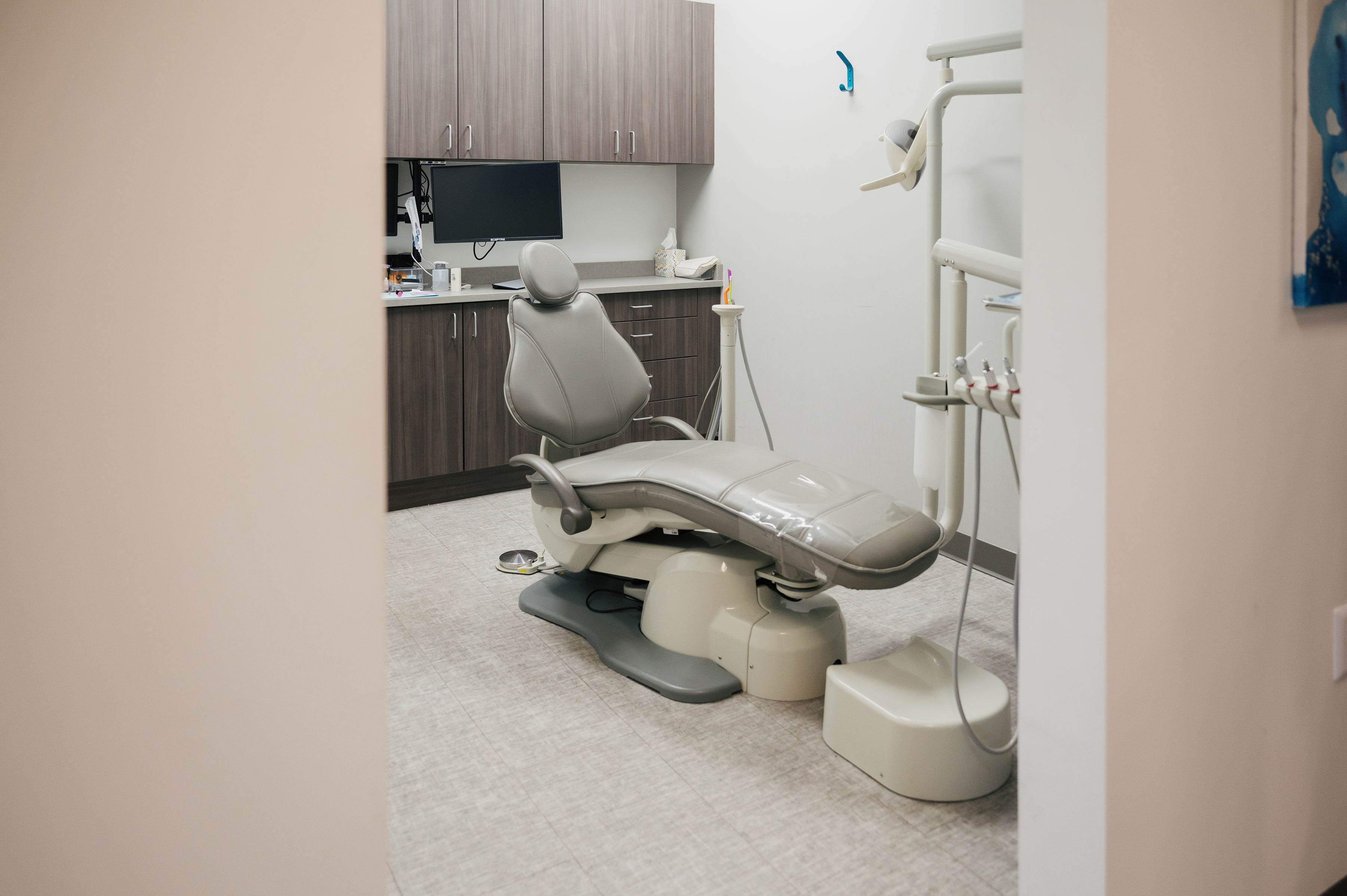Could the Wear on Your Teeth Be Caused by Sleep Apnea?


Obstructive sleep apnea (OSA), a condition that causes your breathing to stop and start as you sleep, not only leads to snoring, headaches, fatigue and various health issues, it can cause scalloped tongue and, much worse, close off your airway. The muscles in your throat and tongue become too relaxed, resulting in a collapsed airway and blocked airflow.
Sleep apnea also can cause wear, a problem that’s often treated with a nightguard. But it’s important to understand that if sleep apnea is the reason your teeth are worn down, a standard nightguard might actually make the problem worse. Why? Standard nightguards are designed specifically for patients who grind or clench. While they serve as a protective barrier between upper and lower teeth, they also may allow your jaw to fall back during sleep—further narrowing your airway and worsening your apnea.
When you visit Dr. Danny Moosa and the Polaris, Ohio, based team at Parkway Family Dental, he’ll complete a thorough exam before deciding on the best avenue for treatment, which may include working with a sleep physician. If a nightguard is the best option to treat your bruxism and the various symptoms it’s causing, Dr. Moosa will talk with you about the benefits and why he’s recommending it.
But if you do indeed have sleep apnea, you could be a candidate for a custom mouthguard, like mandibular advancement devices (MADs), designed to hold the jaw forward. This keeps your airway open as you sleep, reducing snoring and the many problems it causes. If your case is more severe, other treatments may be an option. Either way, Dr. Moosa and the Polaris, Ohio, based team will talk with you about your condition, the symptoms you’re experiencing and how to best alleviate them.
Standard nightguards, even those that are custom fit, are designed to cover the upper or lower arch to stop the teeth from grinding; they do nothing to control how your jaw is positioned. Why is that a problem? Patients with OSA need jaw support. Without it, the jaw can actually slide backward while you sleep—crowding your airway and worsening the problem.
As you might imagine, over-the-counter nightguards that aren’t specifically designed for you are even worse. If they don’t fit right (which they likely won’t) they’ll be uncomfortable. The problem is, moving the jaw into a more comfortable position, the natural inclination, could narrow the airway and cause more issues.
A standard nightguard will protect your teeth from grinding, which may be a relief. Unfortunately, it does nothing to fix the underlying problem that’s causing the grinding—which is likely sleep apnea. So, while you’re no longer grinding your teeth, you still have to deal with all the side effects sleep apnea causes, which could include headaches, high blood pressure, daytime sleepiness and irritability.
If Dr. Moosa suspects the wear on your teeth is caused by sleep apnea, he may suggest lifestyle changes such as losing weight or ditching cigarettes. If lifestyle changes don’t help the problem, you could be a candidate for custom devices that support the jaw and open up the airway, relieving your symptoms.
The custom oral appliances designed to treat OSA are easy to use and comfortable to wear. Some bring your jaw forward, opening your throat and alleviating symptoms like snoring.
If you have a moderate to severe case of OSA, continuous positive airway pressure (CPAP) may be the best treatment option. These machines deliver air pressure through a mask while you sleep. A CPAP provides just enough air to keep your upper airway passages open—relieving symptoms like snoring.
If you have OSA, there will be several signs in the oral cavity - including worn down teeth. OSA often causes bruxism, but treating just the bruxism with a standard nightguard could make your apnea worse. To relieve symptoms, you need treatment tailored specifically for sleep apnea. Dr. Moosa and the team at Parkway Family Dental will go over your symptoms and ensure you get a proper diagnosis so you can determine which treatment option is best for you.
If you think you might have OSA, now is the time to visit Dr. Moosa at his Polaris, Ohio, office. Don’t hesitate. Uncontrolled sleep apnea can lead to many problems that impact your daily life and your overall health. Call the office to schedule an appointment with Dr. Moosa today.
Please call 614.854.0101 or click below to schedule an appointment online. We can't wait to meet you!